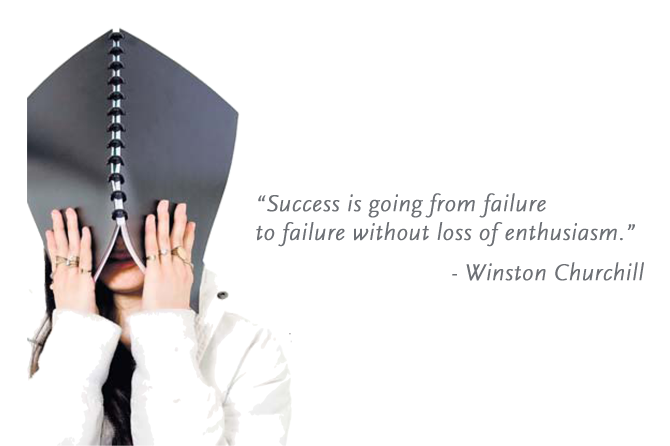Sadly, when competitive or university exam results are announced, many students are unable to handle adverse results and resort to extreme steps, including suicides.
Unfortunately, students don’t realise that suicide is a permanent solution to a temporary problem and leaves behind a trail of issues for family and friends.
If you are a student and get lower than expected marks, it’s natural to be disappointed.
However, this is no reason to conclude that you are a failure; it just means that you are yet to succeed. Napoleon Hill, American writer and motivational speaker, who wrote a classic book, ‘Think and grow rich’, said: “Failure is nature’s plan to prepare you for great responsibilities.”
Success, therefore, doesn’t mean the absence of failures; it means you must stay focused till you attain your ultimate objective. So, it’s appropriate to redefine failure as a disappointment which you can overcome.
Focus on mistakes
Identify the causes for exam disappointments. Usually, exam disappointments are due to a combination of reasons. Some common causes are:
- Inadequate efforts and preparation.
- Inability to manage time while writing the exam.
- Ill-health and exam phobia.
- Overambitious targets.
- Lack of determination to succeed.
Your analysis of the causes will lead you to corrective steps. Exam disappointments should urge you to pursue your goal with persistence and greater efforts. This is the formula behind the success of many students like Sonia who didn’t fare well in CAT 2007 and missed getting into an IIM. She analysed and discovered the wrong strategy behind her failure. In the 2008 CAT, she worked on her mistakes to become a topper and got through to the IIM of her choice. In the year that she missed, she took a short-term course in fine arts, a hobby which she always wanted to pursue, but never had the time.
Speaking of her past, Sonia says, “Initially, I was extremely disappointed. However, my success in the following year’s CAT was only due to the understanding and support of my parents. They motivated me to take up CAT again and also encouraged me to do the fine arts course. This completely took the pressure off my head and was instrumental in my CAT success in 2008.”
Constructive role of parents and teachers
Indeed, that’s what most parents should be doing. Supporting children when they face disappointments and motivating them to keep trying is critical. Signs of depression may not be visible on the faces of children. An active line of communication and a helpful attitude will allow parents to understand the impact of disappointments on children and facilitate taking corrective steps. Parents should also desist from forcing children into courses they don’t enjoy and instead guide them to choose the right course.
Another outcome of exam disappointments is ‘low self-esteem’. There is an urgent need in institutions to impart soft skills training to students, preparing them to handle adversity with courage. Teachers and counselors should play a constructive role, instilling confidence in students to try again. As a student, you must share your feelings with parents and teachers without fear. They have a special interest in your progress and would always be there to support you.
Overcoming disappointments
- Irritation and negative thoughts of disappointment may hold you back. Clear your mind by forgiving yourself.
- Discover the power of positive thinking and visualise your success.
- Rework the plan, taking guidance from parents and teachers.
- Implement the plan with determination and faith in yourself.
- Use the spare time, for a short-term course, to enhance soft skills or a hobby-related course.
Bouncing high when you hit the bottom
Get ahead in life, leaving behind negative emotions of disappointments. No matter how far you have gone on a wrong path, it’s wise to turn back.
Success is how high you bounce, when you hit rock bottom. Winston Churchill, former prime minister of UK said: “Success is going from failure to failure without loss of enthusiasm.” In other words, one failure isn’t something to be distressed but reason enough to energise your mind with positive emotions of desire to succeed and have faith in your ability.

